
Ducati Diavel Service Manual: Testing the battery charging system
Note
The on-screen icons used during this procedure are explained in a table at the end of this section.
You can determine the engine rpm required for generator to produce just enough current to charge battery, feed the injection ignition system and all electric items fitted to motorcycle. When applied to a cable, the clamp-type amperemeter (1) part no. 88765.1126V detects the magnetic field generated by the current passing through that cable.
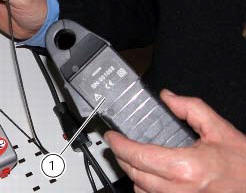

Turn on the dds diagnosis instrument (2) referring to the paragraph "tester power supply".
Connect the power and diagnosis cable (measurement module) (3) part no. 97900.0222 To the measurement module connector (d) of the dds (2).
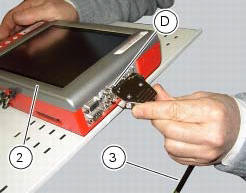
Connect the clamp-type amperemeter (1) to the connector (e) of the power and diagnosis cable (measurement module) (3).
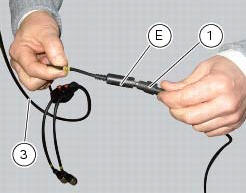
Warning
The clamp-type amperemeter must not be connected to wires through which electrical current is flowing.
Insert the clamp-type amperemeter into the battery positive terminal lead with the arrow on the clamp pointing towards the battery positive terminal (+).
On the dds diagnosis instrument (2), select the "measurement module" function by pressing the corresponding icon; then press the "ammeter" icon (f) followed by the "start" icon.
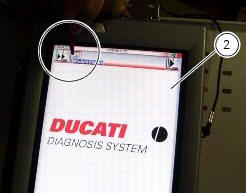
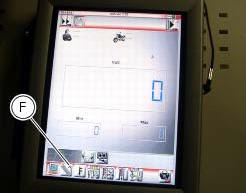
The socket to which the cable (measurement module) (3) is to be connected is indicated on the screen with a capital letter: a, b or c.
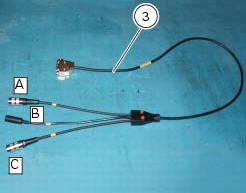
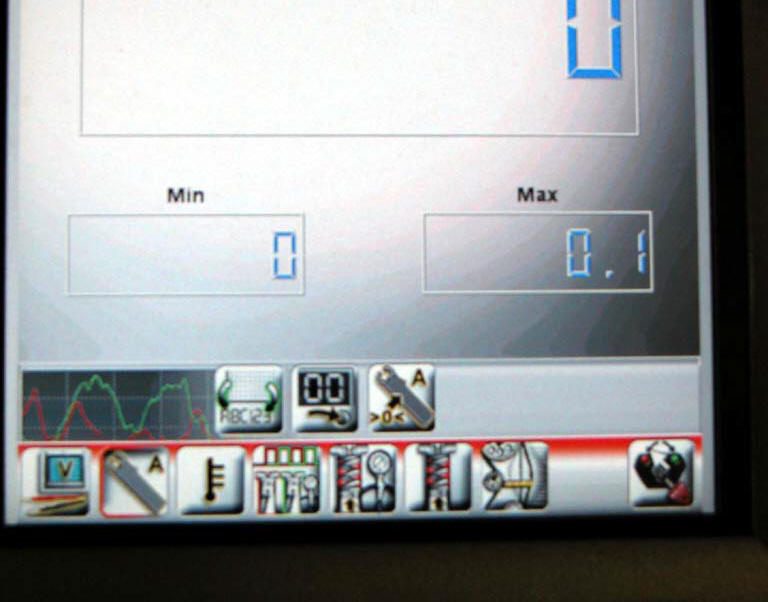
If the measured current is a positive quantity, it means that generator is feeding all electric items and charging battery at the same time. If the current has a negative sign, this means that the charging system is not able to power the electrical loads and a significant amount of the current required must be supplied by the battery, which is therefore discharging.
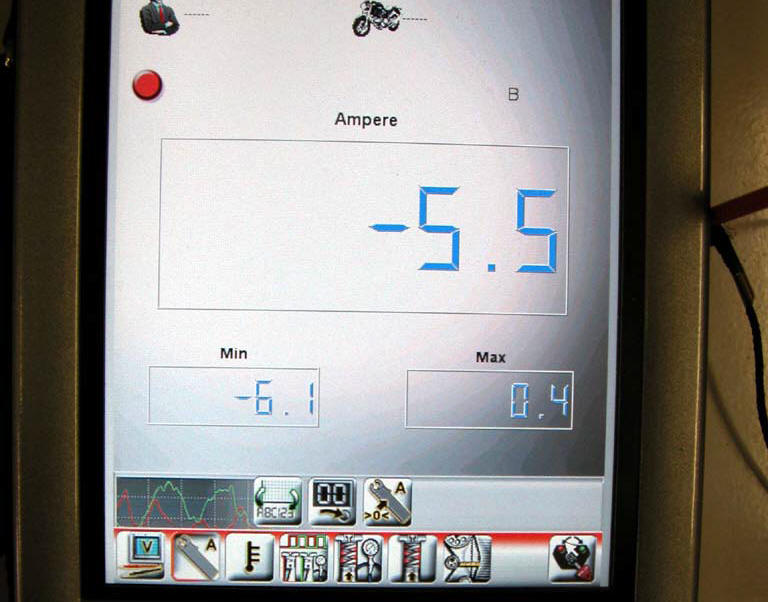
Important
If polarity is reversed when clamping the ammeter onto the cable, the sign of the readings will also be reversed, giving rise to incorrect diagnosis.

 Guided diagnosis
Guided diagnosis
Note
The on-screen icons used during this procedure are explained in a table at
the end of this section.
The dds diagnosis instrument guides the operator step-by-step through the
various diagnos ...
 Deactivating the service indication on the dashboard
Deactivating the service indication on the dashboard
The message "serv" is displayed on the dashboard, indicating that the
motorcycle should be serviced in accordance with
the programmed maintenance plan. This indication is activated after the first ...
Other materials:
Crankshaft/connecting rods assembly
Special screw
Connecting rod assembly
Half bearing
Grub screw
Bushes
Crankshaft
Grub screw
Shim washer
Spare parts catalogue
Diavel abs connecting rods
Diavel carbon
abs
connecting rods
Important
Bold reference numbers in this section identify parts not shown in the
f ...
Topping up the electrolyte
Warning
Before carrying out any operations on the battery, keep in mind the
safety standards (sect.1 - 3, General safety rules).
The electrolyte in the battery is toxic and can cause burns if it comes into
contact with the skin because it contains
sulphuric acid. Wear protective clothing, a ...
Adjusting throttle control free play
The throttle twistgrip must have free play of 1.5×2.0 Mm in
all steering positions, measured on the outer edge of the
twistgrip. If necessary, adjust it using the adjusters (1 and 2,
fig. 135) Located on the headstock on the right-hand side of
the vehicle.
Adjuster (1) is for throttle o ...